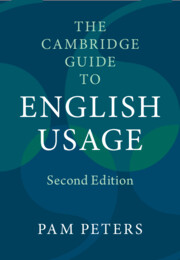Refine search
Actions for selected content:
3410549 results

Language, Imitation and Creativity
- Dialogic Resonance in Grammar and Pragmatics
- Coming soon
-
- Expected online publication date:
- July 2026
- Print publication:
- 31 July 2026
-
- Book
- Export citation
Translanguaging in English Language Classrooms
- A Guide for Teachers
- Coming soon
-
- Expected online publication date:
- July 2026
- Print publication:
- 31 July 2026
-
- Book
- Export citation
Menopause, Menstrual Cycles and Mental Health
- Coming soon
-
- Expected online publication date:
- July 2026
- Print publication:
- 31 July 2026
-
- Book
- Export citation
William Burroughs in Context
- Coming soon
-
- Expected online publication date:
- July 2026
- Print publication:
- 31 July 2026
-
- Book
- Export citation
Motivational Systems
- A Biopsychological Introduction
- Coming soon
-
- Expected online publication date:
- July 2026
- Print publication:
- 31 July 2026
-
- Book
- Export citation

Languaging
- Playfulness and Precarity
- Coming soon
-
- Expected online publication date:
- July 2026
- Print publication:
- 31 July 2026
-
- Book
- Export citation
The Transformation of the Eurasian Gas Trade
- Narratives of Profit and Power
- Coming soon
-
- Expected online publication date:
- July 2026
- Print publication:
- 31 July 2026
-
- Book
- Export citation
Global Governance by Data
- Infrastructures of Algorithmic Rule
- Coming soon
-
- Expected online publication date:
- July 2026
- Print publication:
- 31 July 2026
-
- Book
- Export citation
Japan and Ancient Greece
- Culture and Possession
- Coming soon
-
- Expected online publication date:
- July 2026
- Print publication:
- 31 July 2026
-
- Book
- Export citation
The Afterlife of the Mausoleum of Halicarnassus
- Re-conceiving an Ancient Wonder in Early Modern Europe
- Coming soon
-
- Expected online publication date:
- July 2026
- Print publication:
- 31 July 2026
-
- Book
- Export citation
The Real Pain of Punishment
- Prison, Belonging, and the Quest for Humanized Justice
- Coming soon
-
- Expected online publication date:
- July 2026
- Print publication:
- 31 July 2026
-
- Book
- Export citation

The Cambridge Guide to English Usage
- Coming soon
-
- Expected online publication date:
- July 2026
- Print publication:
- 31 July 2026
-
- Book
- Export citation
Jihadist Peace
- Ending Islamist Civil Wars
- Coming soon
-
- Expected online publication date:
- July 2026
- Print publication:
- 31 July 2026
-
- Book
- Export citation
The Cambridge Introduction to Digital Humanities
- Coming soon
-
- Expected online publication date:
- July 2026
- Print publication:
- 31 July 2026
-
- Book
- Export citation

The Cambridge Companion to Song China
- Coming soon
-
- Expected online publication date:
- July 2026
- Print publication:
- 31 July 2026
-
- Book
- Export citation
The Brussels Bubble
- Inside the European Union in the Digital Age
- Coming soon
-
- Expected online publication date:
- July 2026
- Print publication:
- 31 July 2026
-
- Book
- Export citation
The French Revolution
- Events and Ideas
- Coming soon
-
- Expected online publication date:
- July 2026
- Print publication:
- 31 July 2026
-
- Book
- Export citation
Navigating Landmarks of Identity in Pre-Conquest English Literature
- Coming soon
-
- Expected online publication date:
- July 2026
- Print publication:
- 31 July 2026
-
- Book
- Export citation
Against the Machine
- Why Party Competition Disrupts Vote Buying
- Coming soon
-
- Expected online publication date:
- July 2026
- Print publication:
- 30 June 2026
-
- Book
- Export citation
Astronomy and Philosophy
- Conceptual and Methodological Foundations and Challenges
- Coming soon
-
- Expected online publication date:
- July 2026
- Print publication:
- 31 July 2026
-
- Book
- Export citation
